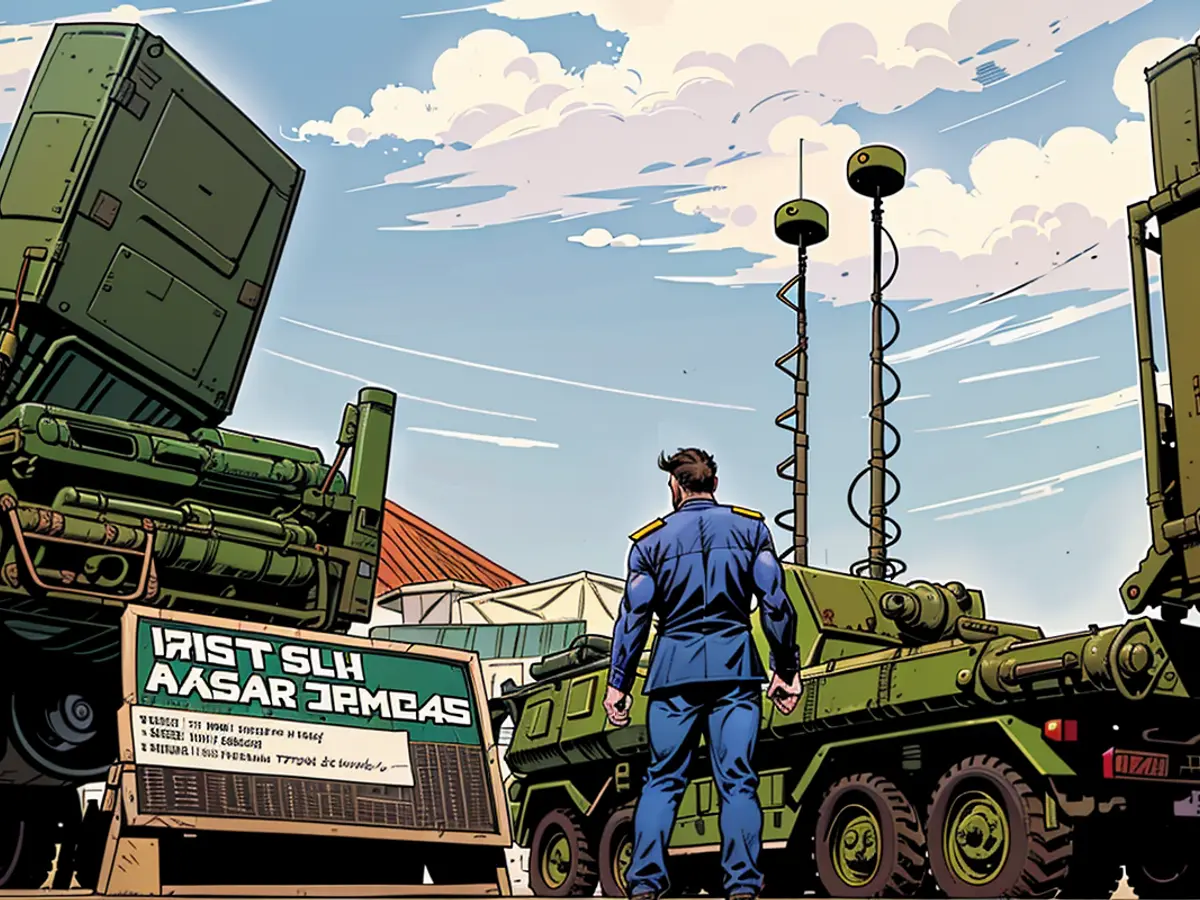- Germany's Future Plans for Aiding Ukraine
Despite budget constraints, Germany intends to continue being a significant backer of Ukraine, as per the federal government's wishes. As declared by the Chancellor, Germany stays fully committed to supporting Ukraine, and this support will carry on till it's necessary. This stance is not to be swayed, not even by the Russian President, emphasized Wolfgang Büchner, the deputy government spokesman, in Berlin.
However, there's a plan to reallocate some of the bilateral aid from the federal budget to multilateral support. The feasibility of this shift remains dubious as international arrangements haven't been finalized yet. The exact way Germany will aid Ukraine in the upcoming year and if it will suffice remains an uncertainty.
Germany's military aid to Ukraine
Germany ranks second among the largest donors to Ukraine, after the USA. The traffic light government has allocated approximately 7.5 billion euros for "restoration" or military aid, this year. Regrettably, this allocation seems to be insufficient, as per the Ministry of Defense, which indicates that almost all the funds have already been utilized or allocated.
Whether additional funds are required this year is under debate. Reports suggest that Defense Minister Boris Pistorius (SPD) consequently requested an additional nearly 4 billion euros a few weeks back. The ministry spokesperson, however, declined to comment on this matter presently. The Finance Ministry, on the other hand, has not received any official requirement report.
Currently, only 4 billion euros in military aid have been budgeted for the next year. This was also the case for the 2024 budget - the allocation was later topped up by the Bundestag. However, budget administrators are not optimistic about this possibility for 2025 due to the tight budget plan.
The Finance Ministry: Extra funds only with solid reasons
Finance Minister Christian Lindner (FDP) subsequently wrote a cautionary letter to Pistorius and Foreign Minister Annalena Baerbock (Greens). He stated that new measures with payment obligations in the coming years could only be adopted if the financing is secured in the budget plans. Lindner's expectation: "Please ensure that the limits are adhered to."
Later, the Lindner Ministry expressed the possibility that additional funds might be possible in the short term. However, the need "must be clearly reported and verifiable" to request further funding from the Bundestag.
Less bilateral support doesn't necessarily translate to less aid for Ukraine, as per the Chancellery and the Finance Ministry's calculations. This is due to major Western industrialized countries' ongoing endeavors to develop a new financing concept for the attacked country.
Upcoming loan for Ukraine
Next year, Ukraine is expected to receive a loan of 50 billion dollars. Interest and repayment for this loan are expected to be covered from the revenue generated from frozen Russian state assets. According to US government figures, approximately 280 billion US dollars (around 260 billion euros) in Russian central bank funds have been frozen in Western countries since the Russian attack on Ukraine. The vast majority of this is within the European Union: around 210 billion euros, according to Commission figures. This frozen money generates billions in interest income annually.
The problem: The loan project negotiations have been ongoing for months – but nothing has been finalized yet. "We assume that this will succeed by the end of 2024," it says in the federal government. However, Ukraine cannot make binding plans with this money. And the Kremlin evaluates the use of the proceeds as expropriation.
"The government is planning – I'd say likely – to provide new financing," said Vice Chancellor Robert Habeck (Greens) at an event in Hamburg. Instead of providing weapons for free, Ukraine will receive money to purchase them. This is perfectly fine, but the transition should not lead to a prolonged interruption in support, he warned.
Criticism faced by the German government
The German government's approach is drawing harsh criticism – even within the coalition. The chairman of the Bundestag's Foreign Affairs Committee, Social Democrat Michael Roth, told the Funke media group that the government's move sends a deadly signal to Ukraine. A 50-billion credit is far from sufficient.
President Frank-Walter Steinmeier also voiced his concerns in unusually blunt terms: "I expect Germany to remain a major, Europe's largest supporter of Ukraine," he said on the sidelines of a visit to Hungary.
The government moved to pacify concerns and updated its list of military equipment deliveries to Ukraine. By the end of the year, four Iris-T air defense systems with varying ranges, ten Gepard anti-aircraft tanks, 16 self-propelled howitzers, ten Leopard combat tanks, combat drones, and several thousand rounds of artillery and tank ammunition are to be delivered, Büchner announced. For next year, over 20 self-propelled howitzers, 20 Marder armored personnel carriers, 37 Leopard combat tanks, five Gepard anti-aircraft tanks, six more IRIS-T systems, and several thousand rounds of artillery and tank ammunition are promised. "Therefore, there is absolutely no message from the government that support is being reduced or restricted in any way."
Despite the discussion about reallocating aid funds, Germany's commitment to providing credit to Ukraine for purchasing military equipment continues. Finance Minister Lindner emphasized the need for solid reasons before approving additional funds.
In response to criticism, the German government has reassured Ukraine of its continued support by announcing planned deliveries of military equipment, including air defense systems, anti-aircraft tanks, and self-propelled howitzers.








